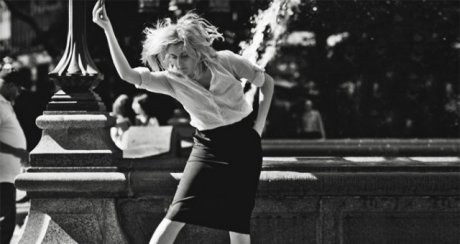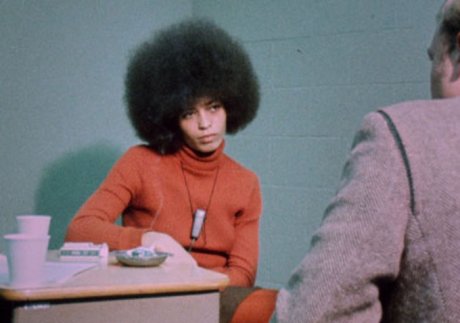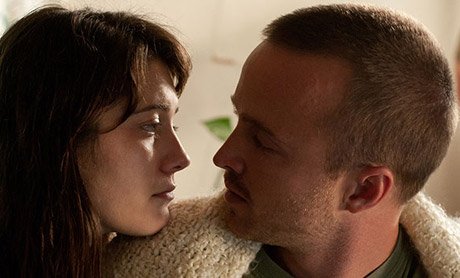Selecting films from a festival’s lineup makes me feel like a kid writing a Christmas Wish List. You’ll never get everything on it, but savoring the options is half the fun. Is the Toronto International Film Festival the FAO Schwarz of film festivals? Its selection has something for everyone, from cheap little pots of playdough to hand-sewn, life-size stuffed safari animals for the children of bankers. When they can all be had on the same ticket, how do you choose? Despite my anxiety of committing to the wrong film, there were few missteps in my personal slate. Interestingly enough, those came from established auteurs whose new work I greatly anticipated. I’m sad to say that Terrence Malick’s To The Wonder and Ramin Bahrani’s At Any Price are wobbly and uneven. Javier Bardem shines as a doubting priest, but Malick risks self-parody with his faux-naïf women endlessly running through open fields. And Bahrani’s family saga set among Iowa cornfields is overly melodramatic, unfortunately burying a fine performance by (yes! believe it!) Zac Efron (if he wields his handsomeness correctly, I see hints of a young Brad Pitt emerging). Despite tantalizing sequences, these films don’t hold up as complete pieces of work.
If those were the pots of playdough, there were more than enough eight-foot tall giraffes to compensate. This may have been the festival where I felt the full utility of Twitter, which I used as a gauge to measure against my own innate preferences. Despite its corny trailer, early buzz convinced me to give David O. Russell’s Silver Linings Playbook a closer look. It ended up being one of my festival favorites and unsurprisingly took home the People’s Choice Award at Toronto (an acknowledged early Oscar boost). Ditto for Nauch Baumbach’s Frances Ha, the latest entry into the hapless-heroine-trolls-Brooklyn genre. Black-and-white digital cinematography? Greta Gerwig as ingenue? I doubt I would have prioritized it if respected peers hadn’t lit up the internets with their approval. And, boyo, was I snobbish and wrong: Baumbach’s film is lovely. As it turns out, knowing what I don’t know was my best strategy.
Here are my giraffes of the 2012 Toronto International Film Festival.
Sightseers (Ben Wheatley)

A departure from his cult horror film Kill List, very little is sacred in this black comedy from British director Ben Wheatley. Sightseers is an adaptation from the stage piece by Alice Lowe and Steve Oram, who reprise their roles in the film, but Wheatley adds plenty of his own inspiration, from the sharp visuals to the Krautrock soundtrack. Lowe’s Tina is a nerdy dog psychologist who still lives with her controlling, manipulative mum, and Oram is creepy perfection as Tina’s new boyfriend Chris. When he proposes a caravan holiday through the English countryside, Tina can’t wait to escape, packing her homespun, knit lingerie in anticipation of their “erotic odyssey.” They’re well on the road before Tina figures out that Chris is a murdering psychopath. At the slightest provocation, Chris tosses people off cliffs or bashes their head in with a rock, a character flaw that leaves an inconvenient trail of corpses in their wake. Is it love or Stockholm syndrome that makes Tina stay with Chris? Everyone will have their own interpretation of what Wheatley called the “evil Thelma & Louise ending.” Sightseers is full of such Coen-esque brilliance.
Room 237 (Rodney Ascher)

Much like beauty, elaborate conspiracy theories are in the eye of the beholder. Named for the infamous room in the Overlook Hotel, Rodney Ascher’s documentary is a quirky, somewhat insular exploration of several such theories, built by fans who obsessively watch and deconstruct Stanley Kubrick’s The Shining. Ascher sourced his interviewees from the internet, and though we hear them narrate their theories, they never appear on screen. In lieu of the traditional talking heads, Ascher deliberately submerges us in the visual context of the film. As meaning layers upon meaning, there’s a hypnotic pleasure in getting lost in Kubrick’s world. The theories skew toward the political, with The Shining read as a condemnation of the extermination of Native Americans, of the Nazi crimes of World War II, of Kubrick’s guilty participation in the filming of a faked moon landing. Will you believe all of it or none of it? Like any remix, it depends on what’s your jam. Either way, Room 237 is a rich, participatory way of seeing a classic film through new eyes.
Frances Ha (Noah Baumbach)

Movies (or HBO shows) about young New York women fumbling towards ecstasy usually put me to sleep. So it was with one very arched brow that I sat down to watch Noah Baumbach’s Frances Ha. But several minutes in the layer of smug lifted and Baumbach’s gem began to sparkle across the screen. Beginning with the elegant, black-and-white images, Baumbach brings out the best in Greta Gerwig, whose Frances is sharp and funny, less a millennial girl than an updated Annie Hall. There’s a strange alchemy at work: on the surface, Frances might be indistinguishable from similar anti-heroines bent on self-destruction (including, recently, Gerwig herself in the dull Lola Versus). But Baumbach’s film is so much greater than the sum of its parts. Those parts include a very droll Adam Driver as the prototypical playboy hipster and a standout Michael Zegen as his more diffident roommate. Frances Ha is thoroughly charming, and it continued to reverberate long after I left the theater. Consider me converted.
Free Angela & All Political Prisoners (Shola Lynch)

Working from interviews and a treasure trove of archival footage, Shola Lynch’s documentary constructs an account of the persecution, incarceration, and triumphant acquittal of activist and icon Angela Davis. It’s an insider’s portrait, and Lynch assumes both that her audience is familiar with Angela’s story, and that we are on her side. Those looking for an airtight historical narrative or scholarly objectivity won’t find it here. Free Angela functions more as a well-crafted snapshot of a specific moment (and event), rich with the aesthetic beauty of 1970s newsreels, as well as lively, eloquent interviews with Angela and other key figures in her trial. For those who share my fascination with the civil rights era, impressionistic films like Free Angela and last year’s jazzy Black Power Mixtape offer an engrossing rearview look at that part of American history.
Smashed (James Ponsoldt)

Director James Ponsoldt takes on addiction with none of the typical buzzkill or drama. He smartly builds the film around Mary Elizabeth Winstead, who gives a remarkable performance as Katie, a young woman coping with the realization that she’s an alcoholic. Ponsoldt’s script (co-written with Susan Burke) nicely balances the humor and sorrow of Katie’s situation, mirroring her hipster-ish Angeleno life with realism and wit. In addition to Winstead, Smashed has an ace cast, pitting Aaron Paul as Katie’s hard-drinking husband against Nick Offerman and Octavia Spencer as her AA allies. Although it is sensational excess that often makes headlines, Ponsoldt’s quiet story is arguably more compelling.
Silver Linings Playbook (David O. Russell)

Paging Mindy Kaling: the latest from David O. Russell is the most exciting reinvention of the romantic comedy since The Devil Wears Prada. It’s bizarrely modern, dark without losing any of the heart that we look for in a classic romance. Bradley Cooper is excellent as Pat Solitano, a man struggling to put his life back together after a violent episode that lands him in a mental institution. Bipolar and reluctantly on meds, Pat returns home to both Philly and the watchful gaze of his parents (played by DeNiro, finally back in top form, and Jacki Weaver). Although Pat is focused on winning back his ex-wife, he keeps colliding with neighbor Tiffany (Jennifer Lawrence). She’s brash, unbalanced, and perfect for Pat, from their meet-cute bonding over psychiatric medications to the inevitable ballroom dance competition training montage. Yep. Why are they in a ballroom dance competition? Who cares! Russell swings the camera around with giddy energy, and that magic seems to envelope the cast. We get DeNiro reborn, and Cooper and Lawrence in the best dance routine since Swayze refused to put Baby in the corner. A pure, unbridled winner.
